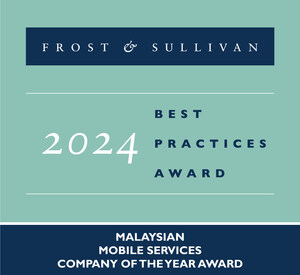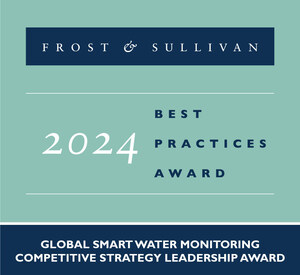LONDON, June 29 /PRNewswire/ -- Hard hit by the global economic slowdown in 2009, the European polymer blends and alloys market is on the upswing again, thanks mainly to high growth potential in Eastern Europe, particularly for electronics applications. Electronic housing and computer-related applications will be the main development areas for polymer blends, especially polycarbonate blends, but bio-based polymer blends are just as promising, as environmental concerns escalate worldwide.
(Logo: http://photos.prnewswire.com/prnh/20081117/FSLOGO)
(Logo: http://www.newscom.com/cgi-bin/prnh/20081117/FSLOGO)
New analysis from Frost & Sullivan (http://www.chemicals.frost.com), European Polymer Blends and Alloys Markets, finds that the market earned revenues of euro 346.0 million in 2009 and estimates this to reach euro 453.00 million in 2016. The application areas covered in this research service are: transportation, electronics, consumer goods, construction and industrial applications.
"The electronic housing industry, including housing of IT-related products such as personal computers and laptops, will be the major growth driver for the polymer blends and alloys market in Europe as global manufacturers of electronic and IT-related products move their manufacturing bases to Eastern Europe, which offers better quality control standards than Asia," states Frost & Sullivan Research Analyst Aniruddh Menon.
Bio-based polymer blends offer equally good growth potential. Companies in that market are rapidly diversifying from bags and packaging-related applications to high performance applications, the major drivers behind the replacement of engineering and commodity plastics with bio-based or biodegradable plastics.
However, blend manufacturers must identify new application areas for polymer blends. Polymer blends are more expensive than commodity polymers, due to higher processing costs. As companies tighten their budgets, they are opting to move towards modified commodity polymers like long glass fibre re-enforced Polypropylene or ABS, especially in high-volume applications like automotive. These polymers offer nearly the same performance as polymer blends. Thus, it is necessary to identify niche applications in which commodity polymers cannot replace polymer blends. Additionally, the growing presence of Asian polymer blend suppliers in Eastern Europe is stepping-up competition, making it more challenging for the European blend manufacturers to boost their market share.
"Although polymer blend manufacturers are unlikely to show growth in the current market scenario, demand should increase after 2012 once automotive and electronic manufacturers begin to free up their budgets compared to the 2008-2010 period. This will result in some manufacturers opting for polymer blends, which, though comparatively costlier, provide higher performance levels than commodity polymers," explains Menon.
Until then, polymer blend manufacturers should work closely with customers to identify the niche opportunities in polymer blend applications. Bio-based polymer blends, for example, is a very promising investment for companies, as growing environmental awareness and government regulations fuel demand for sustainable products that can be used for engineering applications.
If you are interested in more information on this study, please e-mail Monika Kwiecinska, Corporate Communications, at [email protected], with your full name, company name, title, telephone number, company e-mail address, company website, city, state and country.
European Polymer Blends and Alloys Markets is part of the Chemicals & Materials Growth Partnership Services programme, which also includes research in the following markets: Global Bio-based Plastics Market, Global Markets for Plastics in Passenger Vehicles, and European Market for Materials for Energy-efficient Buildings. All research services included in subscriptions provide detailed market opportunities and industry trends that have been evaluated following extensive interviews with market participants.
About the Chemicals, Materials and Food Practice
Frost & Sullivan's Chemicals, Materials & Food practice provides global industry analysis, growth consulting, market research, market forecasts and insights into emerging technologies. This enables clients to address current trends and challenges, identify new technologies and take advantage of opportunities for growth. Our global team of industry experts, consultants, market analysts and research executives monitor the use of chemicals and materials in Transportation, Construction & Utilities, Personal Wellbeing, Personal Protective Equipment and Food & Beverages.
About Frost & Sullivan
Frost & Sullivan, the Growth Partnership Company, enables clients to accelerate growth and achieve best-in-class positions in growth, innovation and leadership. The company's Growth Partnership Service provides the CEO and the CEO's Growth Team with disciplined research and best-practice models to drive the generation, evaluation, and implementation of powerful growth strategies. Frost & Sullivan leverages over 45 years of experience in partnering with Global 1000 companies, emerging businesses and the investment community from 40 offices on six continents. To join our Growth Partnership, please visit http://www.frost.com.
European Polymer Blends and Alloys Markets
M44E
Contact: |
|
Monika Kwiecinska |
|
Corporate Communications – Europe |
|
P: +48 22 390 4127 |
|
F: +48 22 390 4160 |
|
SOURCE Frost & Sullivan
WANT YOUR COMPANY'S NEWS FEATURED ON PRNEWSWIRE.COM?
Newsrooms &
Influencers
Digital Media
Outlets
Journalists
Opted In





Share this article